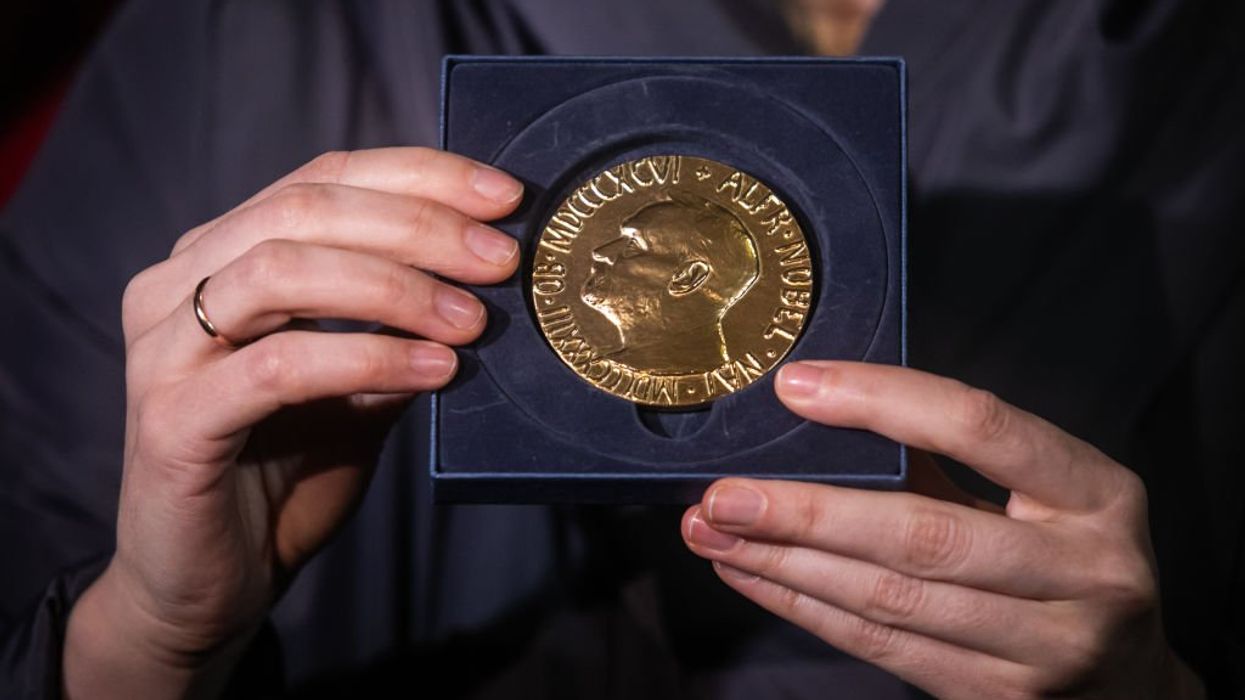White House Press Secretary Karoline Leavitt sparked widespread debate Thursday by calling for President Donald Trump to receive a Nobel Peace Prize.
Leavitt asserted that Trump merits the prestigious recognition, citing his role in negotiating peace deals and ceasefire agreements across six major international conflicts. However, the wars in Ukraine and the Gaza Strip are still ongoing.
Israeli Prime Minister Benjamin Netanyahu told Trump last month that he recommended him for the award, handing the American leader the letter he said he sent to the Nobel committee.
Stopping Iran’s Nuclear Program
U.S. officials have long labeled Iran as the world’s leading state sponsor of terrorism. In June 2025, intelligence reports suggested Iran was accelerating efforts to develop nuclear weapons. In response, Trump authorized targeted U.S. airstrikes on three Iranian nuclear facilities, which were described as “totally obliterated”. The strikes were followed by stern warnings against retaliation, and while Iran did launch a limited strike on a U.S. base in Qatar, no casualties were reported.
Supporters argue that Trump’s decisive action:
- Prevented Iran from acquiring nuclear weapons.
- Averted a potential regional arms race.
- Reinforced U.S. deterrence without triggering full-scale war.
Rep. Buddy Carter (R-Ga.) cited these actions in his formal nomination letter to the Norwegian Nobel Committee, praising Trump’s “bold, decisive actions to halt Iran’s nuclear ambitions”.
Brokering Peace Between Iran and Israel
Just days after the strikes, Trump announced a ceasefire agreement between Iran and Israel, ending weeks of open conflict that had threatened to engulf the Middle East. The ceasefire, brokered with U.S. involvement, was hailed as “extraordinary” by commentators and foreign leaders alike.
Netanyahu called Trump “a peacemaker in one country and one region after the other”. The ceasefire remains intact, despite early skepticism about its durability.
A Broader Peace Agenda
Trump’s recent efforts build on his earlier diplomatic initiatives:
- The Abraham Accords (2020), which normalized relations between Israel and several Arab nations.
- De-escalation of tensions between India and Pakistan.
- Attempts to mediate ceasefires in Ukraine and Gaza.
While critics question the sustainability and motives behind these deals, proponents argue that Trump’s “peace through strength” doctrine has yielded tangible results in some of the world’s most volatile regions.
A Divisive but Impactful Nomination
Trump has been nominated for the Nobel Peace Prize multiple times, but has never won. This year, however, his candidacy has gained traction, with endorsements from lawmakers, tribal nations, and foreign governments, including Pakistan.
Critics across the political and academic spectrum are voicing strong opposition, questioning both the merit and motivations behind the endorsements.
"Nominating Trump for the Nobel Peace Prize is like entering a hyena in a dog show,” said Emma Shortis, a senior fellow at RMIT University, in a panel of experts convened by The Independent. “There is no peace in Gaza, and Trump’s approach to diplomacy is transactional, not transformative.”
Even some who initially nominated him—like Ukrainian MP Oleksandr Merezhko—have withdrawn support, citing inconsistency and a lack of genuine commitment to peace.
Betting markets reflect the controversy. While Trump remains a top contender with odds as high as 32% according to some sportsbooks, critics argue that the surge in support is politically driven rather than based on substantive peacebuilding.
Nobel Peace Prize Criteria
According to Alfred Nobel’s will and the Nobel Committee’s interpretation, the Peace Prize is awarded to individuals or organizations that have made:
- Fraternity between nations
- Abolition or reduction of standing armies
- Promotion of peace congresses
Over time, these have expanded to include:
- Human rights advocacy
- Diplomatic negotiation
- Humanitarian work
- Efforts toward nuclear disarmament
So while Trump’s name is in the mix, whether he “deserves” the prize is a deeply polarizing question.
Whether or not the Nobel Committee awards him the prize, Trump’s actions have reignited debate over what constitutes peace in the modern era. Is it diplomacy alone, or can military deterrence and strategic pressure also qualify?
Hugo Balta is the executive editor of the Fulcrum, and the publisher of the Latino News Network.





















